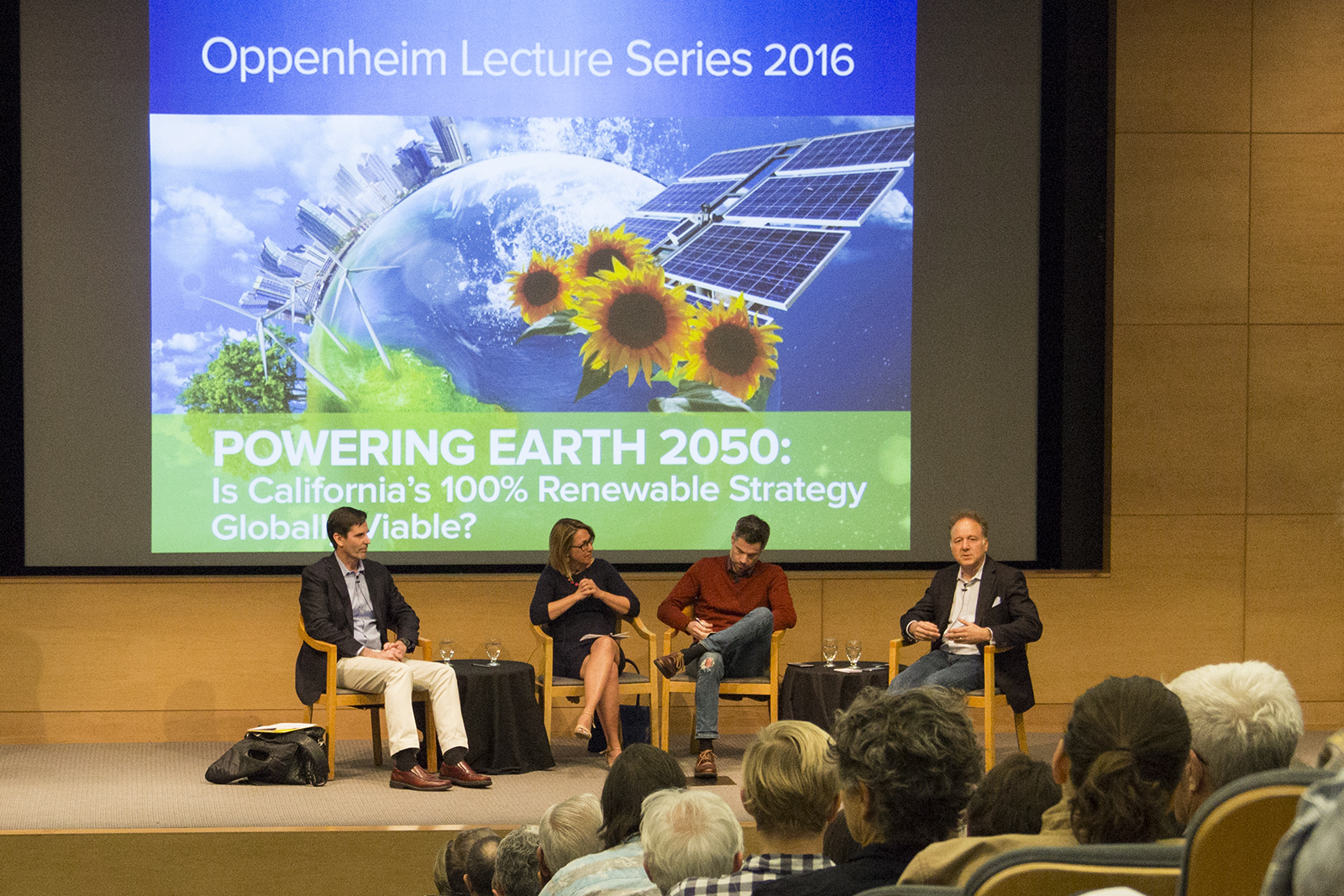Clean energy experts discuss future of sustainable energy at panel

A panel of experts discussed renewable energy and global sustainability at an event at the UCLA Anderson School of Management Tuesday. (Viola Taubmann/Daily Bruin)
By Ravija Harjai
Feb. 25, 2016 12:26 a.m.
Experts discussed the future of climate change, nuclear energy and other global sustainability topics Tuesday afternoon at a panel held to envision which energy sources will play a prominent role in 2050.
The UCLA Institute of the Environment and Sustainability organized “Powering Earth 2050,” as part of the “Oppenheim Lecture Series,” at the UCLA Anderson School of Management. The panel featured four clean energy experts.
Madelyn Glickfeld, assistant director for outreach and strategic initiatives and UCLA Water Resources Group director at the institute, said organizers hoped the event would be a solution-oriented discussion about combating climate change on a global scale.
“California is leading the world in trying to address climate change with our aggressive clean energy program,” she said.
Glickfeld said other nations, such as China and Chile, are trying to implement similar strategies and achieve economic growth by moving away from coal and gas-burning power plants.
Mark Jacobson, professor of civil and environmental engineering at Stanford University, opened the debate by presenting his model for securing 100 percent renewable energy by 2050.
Jacobson said his model accounts for about 140 countries that produce 95 percent of worldwide carbon dioxide emissions. He added he thinks his plan could ultimately provide clean energy to 1.3 billion people who live in energy poverty.
Dale Bryk, director of programs at the National Resources Defense Council, said California and New York have committed to increasing renewable energy consumption to 50 percent. She added she thinks the increase in energy efficiency has made renewable energy a huge investment area.
Ken Caldeira, a climate scientist at the Carnegie Institution for Science at Stanford University, said he thinks only concentrating on solar, wind and renewable energies is underestimating the problem.
“It is like saying we can achieve world peace if everyone puts down their guns,” he said.
Caldeira said it is important to consider carbon capture and storage to show the carbon industry that others are willing to work with them to propose a reform.
Panelists also discussed nuclear power as an alternative source of energy.
Michael Shellenberger, co-founder and senior fellow at the Breakthrough Institute, a group of progressives that addresses energy and environment issues, said he thinks nuclear power generates the most product with the least amount of waste and almost no pollution.
Shellenberger added he thinks uranium fuel scares some people, just as vaccines do, but such beliefs are irrational.
“Nuclear radiation does not kill people,” Shellenberger said. “Panic and radiophobia kill people.”
Some panelists remained skeptical about nuclear energy as an energy source. Jacobson said five countries have secretly developed nuclear weapons, and the Intergovernmental Panel on Climate Change, agrees nuclear energy leads to an increased risk of acquiring nuclear weapons.
He added nuclear power uses six-to-24 times more carbon dioxide for uranium enrichment and is not as efficient as wind, water and solar energy.
Aaron Feigelman, a first-year undeclared student, said he appreciated the different approaches the panel took on the future of nuclear energy. He added he did not expect the viewpoints of the panelists to be so polarizing.
Kitsam Lai, a general business student at UCLA Extension, said he thought the panel was biased toward the clean energy industry. He added he was disappointed it did not feature a finance expert who could conduct an economic analysis of the propositions.
“The technical challenges of a 100 percent renewable future were not addressed,” he said.
As the debate drew to a close, Shellenberger urged the other panelists and audience members to pledge to include nuclear power in the clean energy standard, a policy option already adopted by thirty states and the District of Columbia, that aims to increase the proportion of electricity produced by clean sources and help keep Diablo Canyon Power Plant, the last nuclear power generator in California, open.


